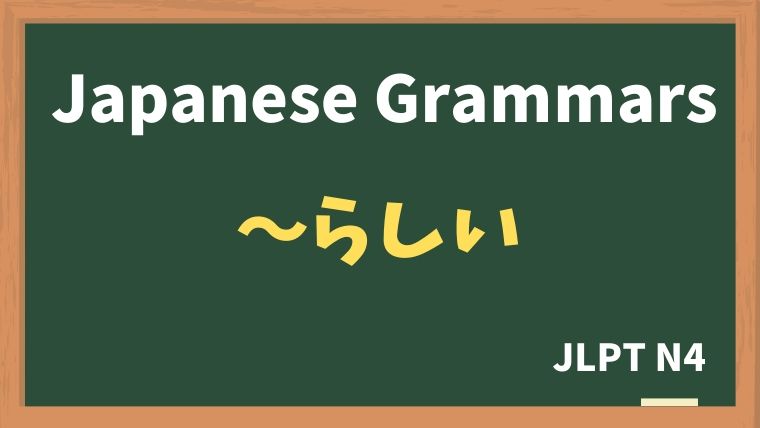
Explanation:〜らしい
fa-check-circleMeaning
"acts just like~ is / typical of ~ / an epitome of"
XはYらしい states that X possesses characteristics typical of Y.
Used to describe characteristics or qualities that are typical or representative of something or someone. It often implies that someone or something embodies the ideal or expected qualities associated with a noun, such as "manly," "spring-like," or "student-like.
fa-check-circleForm
N + らしい
Conjugates same was i - adjective
fa-check-circlePoints
- Represents Expected Qualities: "〜らしい" conveys that the subject has characteristics that are strongly associated with a specific noun.
- Subjective Nuance: It reflects the speaker’s perception or impression, rather than an objective fact.
- Flexibility: "〜らしい" can be applied to people, objects, seasons, abstract concepts, and more.
fa-check-circleJLPT Level
N4
Sample sentenes
君たちは 学生なんだから もっと 学生らしく 勉強しなさい。
You guys are students, so study more like students should.
最近の 子供は 外で 遊ばないで 家で ゲームや スマホを 使って 遊ぶ 子供が 多いですね。 子供は 子供らしく 外で 遊んだほうが いいと 私は 思います。
These days, many children don't play outside but stay at home playing games and using smartphones. I think it's better for children to play outside like children should.
今日は 夏らしく 暑い 1日でした。
Today was a hot summer day.
木村さんは 強いし マッチョだし 本当に 男らしいですね。
Mr. Kimura is strong, muscular, and truly manly.
涼しくなってきたし、 葉も赤くなってきたし、秋らしくなってきましたね。
It's getting cooler, the leaves are turning red, and it's starting to feel like autumn.
Vocabulary
| Japanese | English |
| きみたち | you |
| さいきん | recent |
| そと | outside |
| スマホ | smart phone |
| なつ | summer |
| つよい | strong |
| マッチョ | macho |
| すずしい | cool |
| は | leaf |
Similar Sentence Pattern







